This week’s topics were personal and political cinema. Both subjects are very different, and their ideal message to the audience is vastly different. While personal cinema focuses on how filmmakers convey something about their lives to the audience, political cinema addresses a specific problem and sometimes offers a solution or advice for it. In The Last Detail, it’s explained that in regards to personal cinema, there are “oblique references and small details that read as specific, but don’t necessarily announce themselves as overtly autobiographical…there is still the need to tell a dramatic story that moves forward, and most aspects of directors’ own experiences don’t fit neatly into that kind of easily digestible narrative…” In simple terms, personal cinema is the director’s way of telling their story without sitting in front of a camera and revealing their entire life story, unless the director plays the lead role, in which case that’s different. Additionally, in The Last Detail, it also states that “All cinema is political—some films are subtly political, taking their points of view for granted, and others are openly, even confrontationally political, forcing the audience to take sides.”
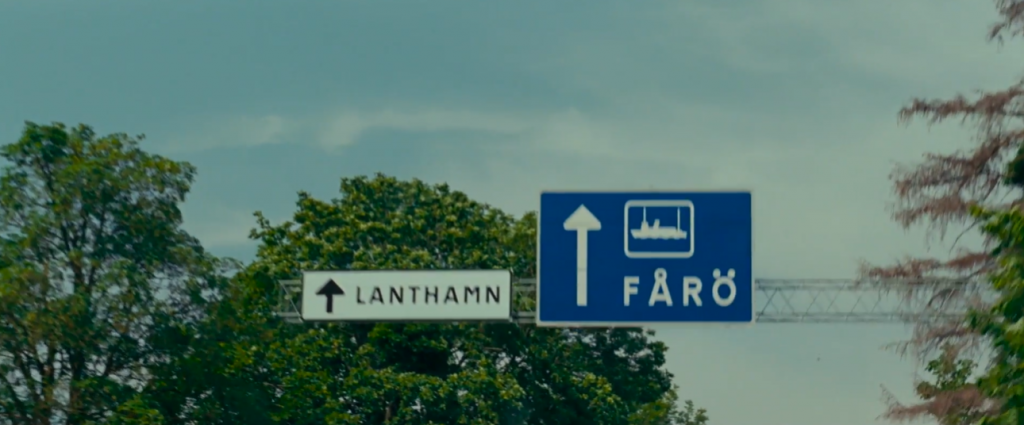
The first movie I watched was called “Bergman Island”, which was a Romance/Drama directed by Mia Hansen-Løve in 2021. The film starts with a couple going on a trip to Fårö. At first glance you might wonder, “Huh, why this place?”, but in IMDb it explains that “Mia Hansen-Løve spoke about how she came to set the film on Ingmar Bergman’s home island of Fårö and how a chance meeting inspired her…”. In The Last Detail, it explains that “In some more extreme cases of autobiography, filmmakers directly restage entire segments of their lives, mostly as an act of memory, but sometimes in a search for catharsis.” I feel like this frame is a good example of that.
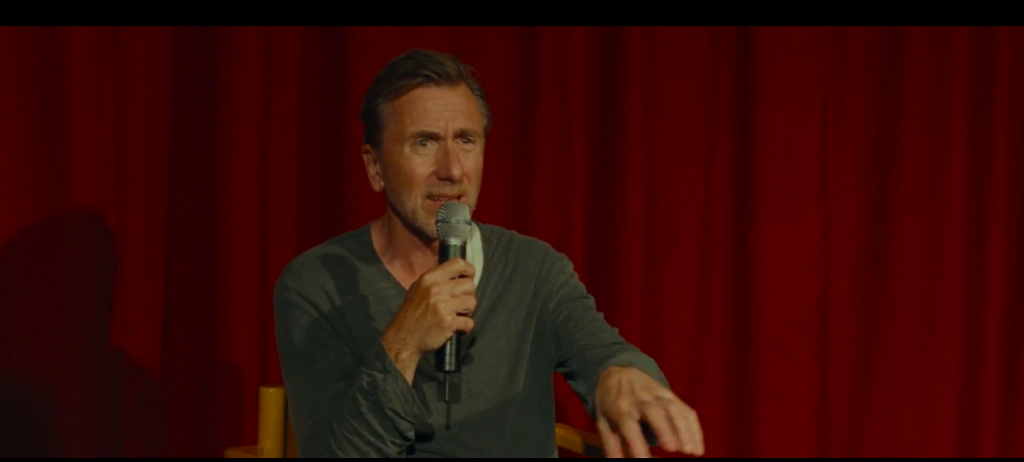
In this scene, the character Tony says, “As a filmmaker.” Watching scenes like where the movie is about filmmakers makes you feel like the character is speaking to you directly instead of to the audience in the scene. I feel like Hansen-Løve does this because it portrays a filmmaker’s life, and the things Tony was saying might be similar to how she would describe them.
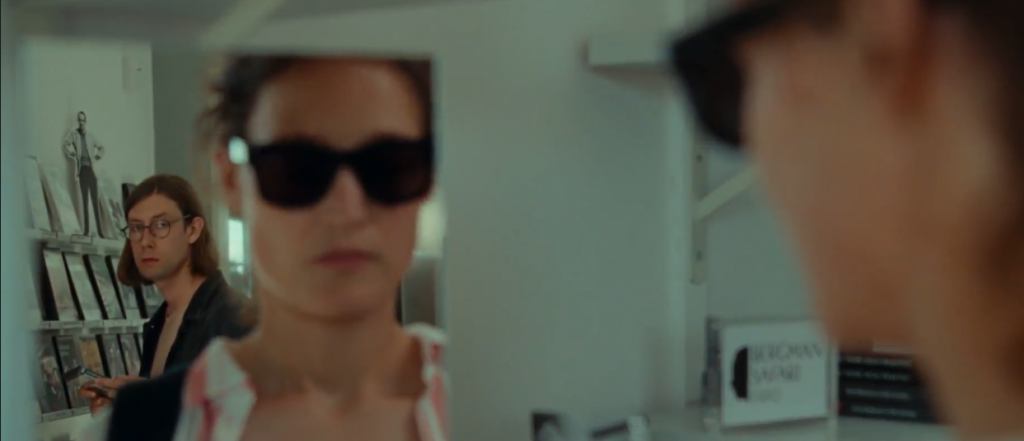

In IMDb, it explains how Hansen-Løve incorporated someone from her own life into the film. It states, “I went there and I met Hampus Nordenson, who you see in the film. He plays his own part… That’s why I kept his name, to make it really clear that it’s really him.”
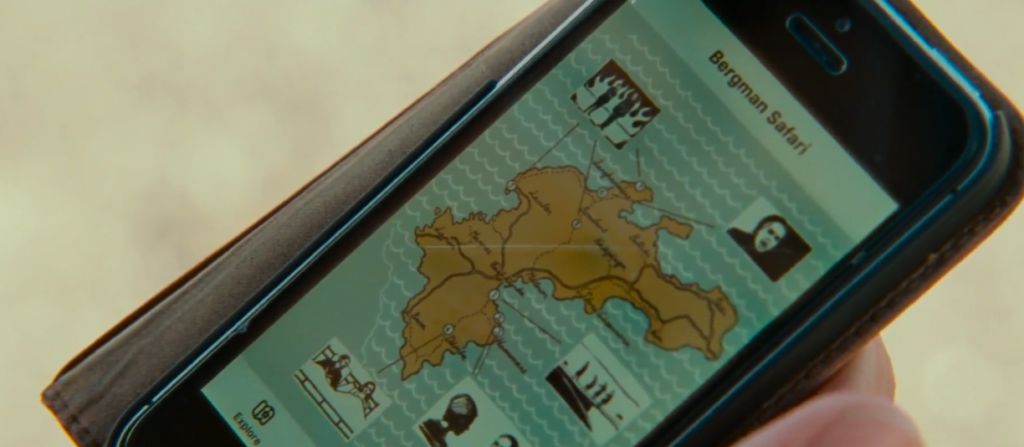
At one point in the film, a group goes on a tour of Bergman Island, and the tour guide explains the significance of Bergman Island. She talks about a certain app, and how the map of Bergman Island is on there. While watching this scene, I realized that this is probably the exact app Hansen-Løve had used when she first visited the island. It felt like a different type of “product placement”.
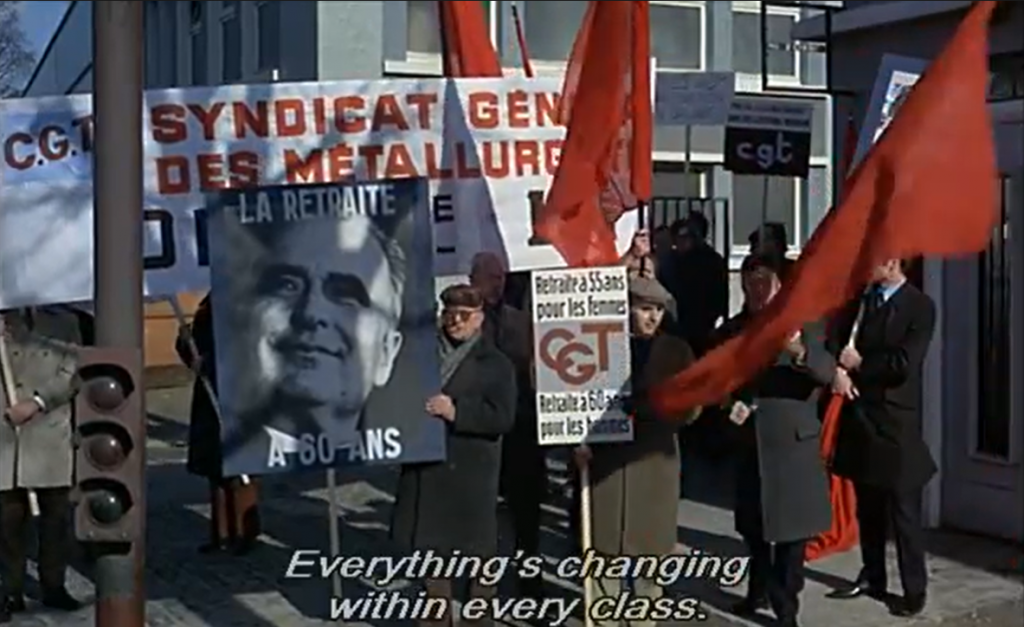
“Tout Va Bien” is a Drama/Political drama directed by Jean-Pierre Gorin and Jean-Luc Godard in 1972. Before watching, it was only natural for me to look up what exactly Tout Va Bien means. It is French and it translates to “everything is fine”. With a little more research, I found out that this film was a “French-Italian political drama”. I tend to jump into books and movies blind and don’t bother getting some background information on them, but for this film specifically, if I didn’t have that small bit of knowledge, I would’ve been unprepared for what I was about to watch.
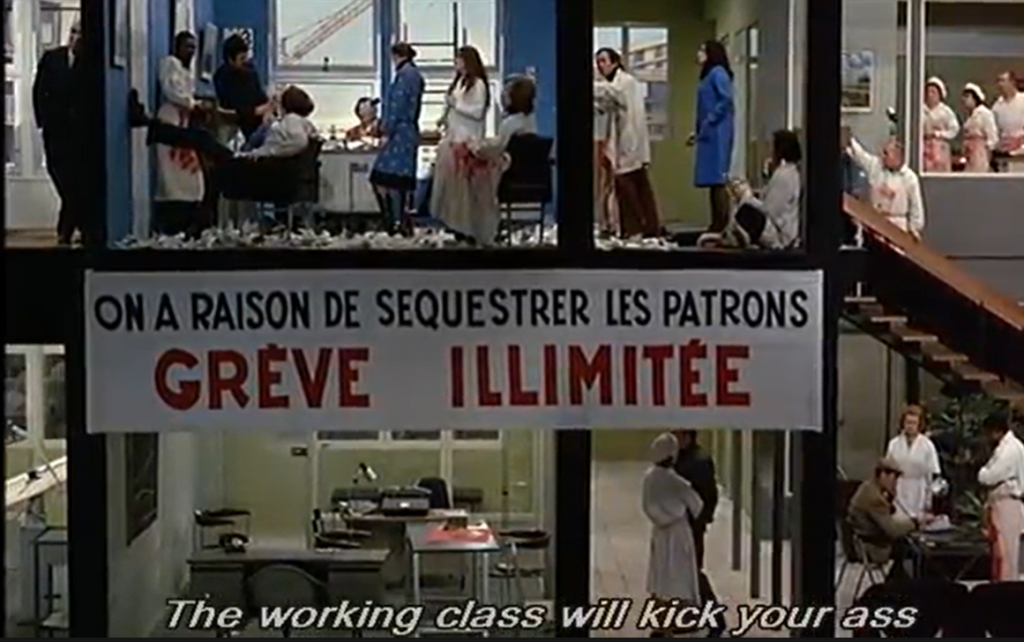
This film is about a strike that takes place in a sausage factory. It is reported by an American reporter and her French husband, who makes TV comercials.
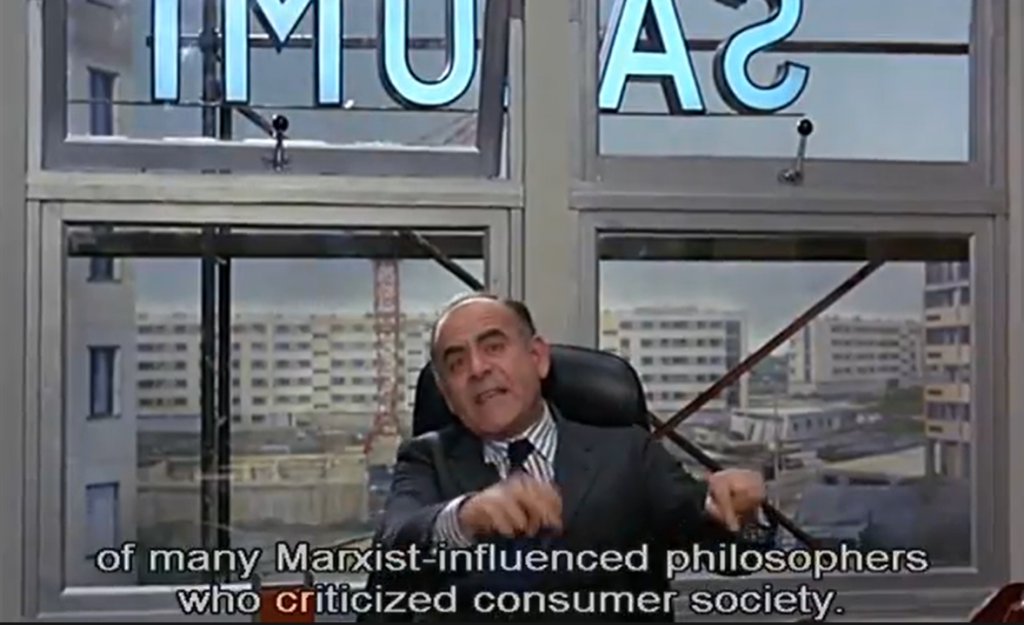
Throughout the film, you can tell that the working class is upset.
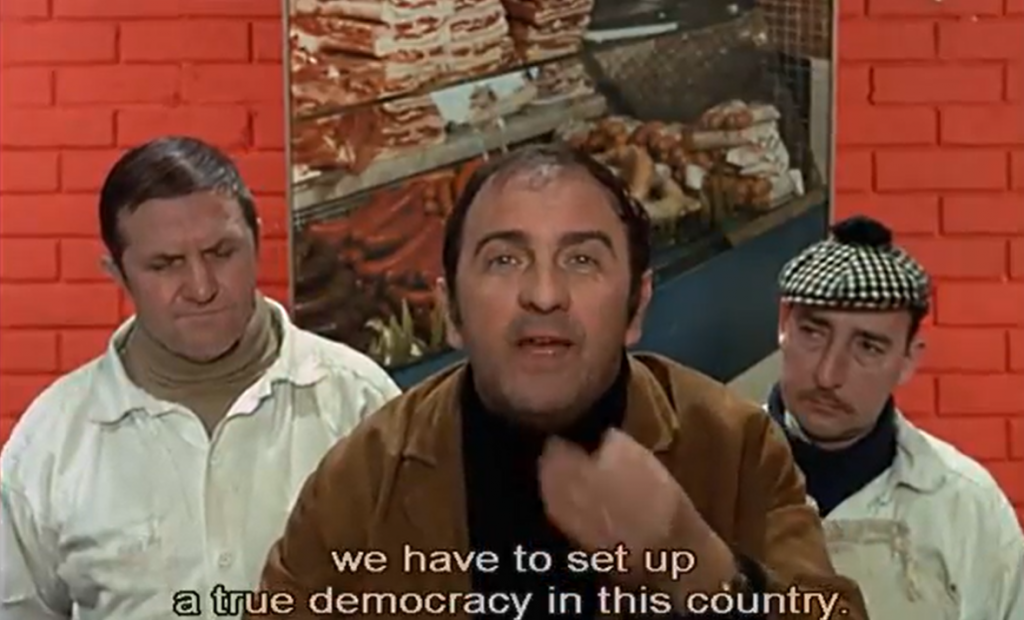
While the characters are protesting and going on strike, they’re addressing their complaints and concerns to the government. But the way that Gorin and Godard film this, it feels like the people are talking to the audience and trying to express their concerns to the world this way.
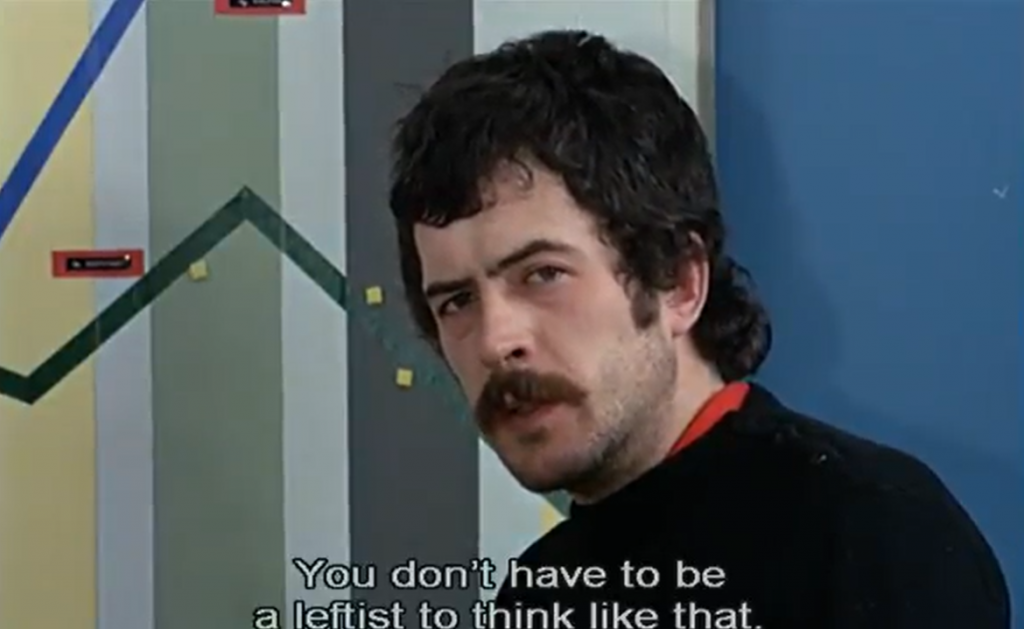
Usually in films, a fourth wall break is common is very subtle, but throughout this film, the characters regularly look and speak directly at the camera as if directly talking to the audience. It makes you feel on edge and unnerved.
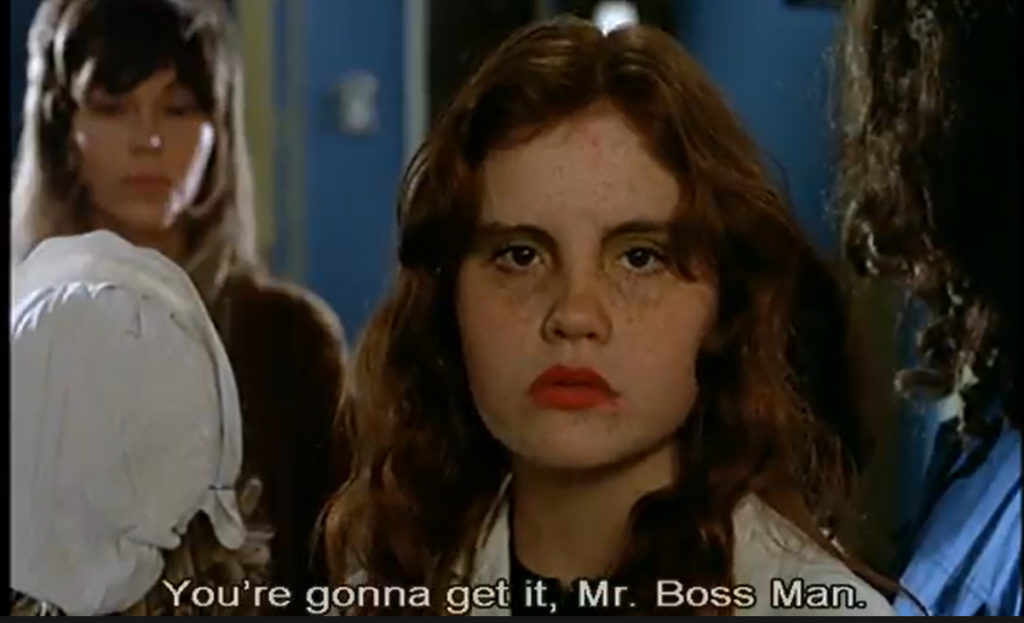
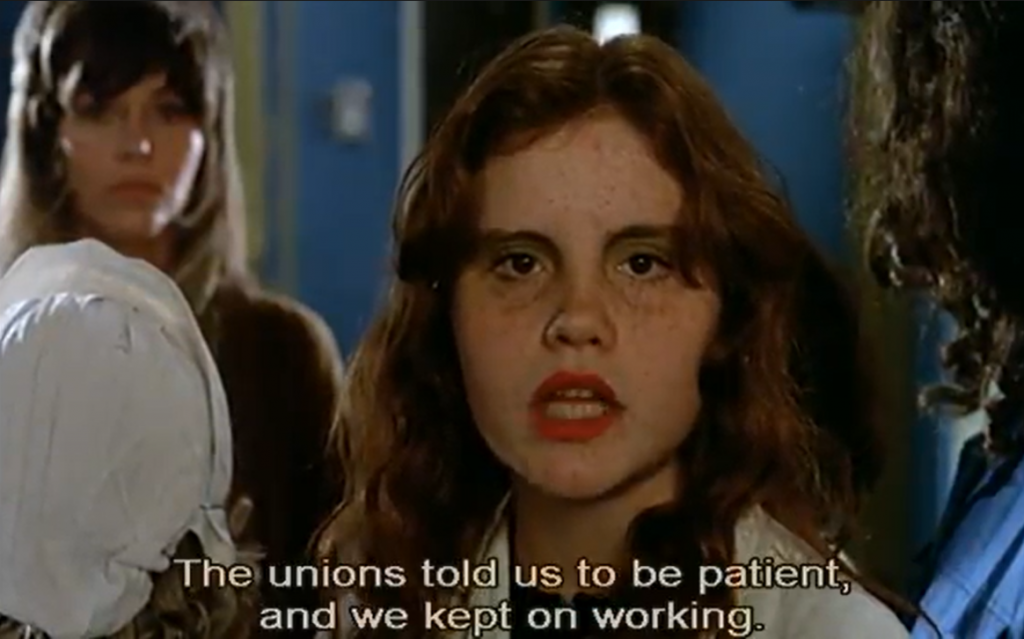
In these two screenshots, the character says “Mr. Boss Man”. As an audience member, you can tell right away that she is addressing the president, and with the way she doesn’t say a name, it feels as though she’s calling out the “Boss” through the camera. Without saying his name, she’s saying, “We’re overworked, and I’m disappointed in you.”
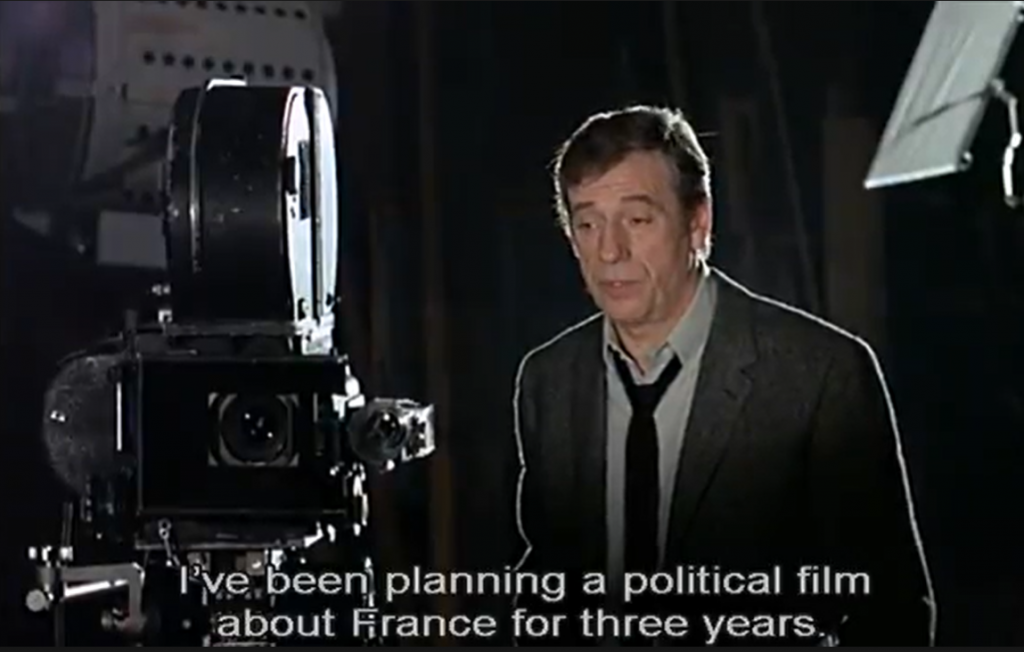
In this scene, it feels like it’s a cut from the film, as if we’re in an intermission. One of the directors are talking and explaining their vision for the political film.
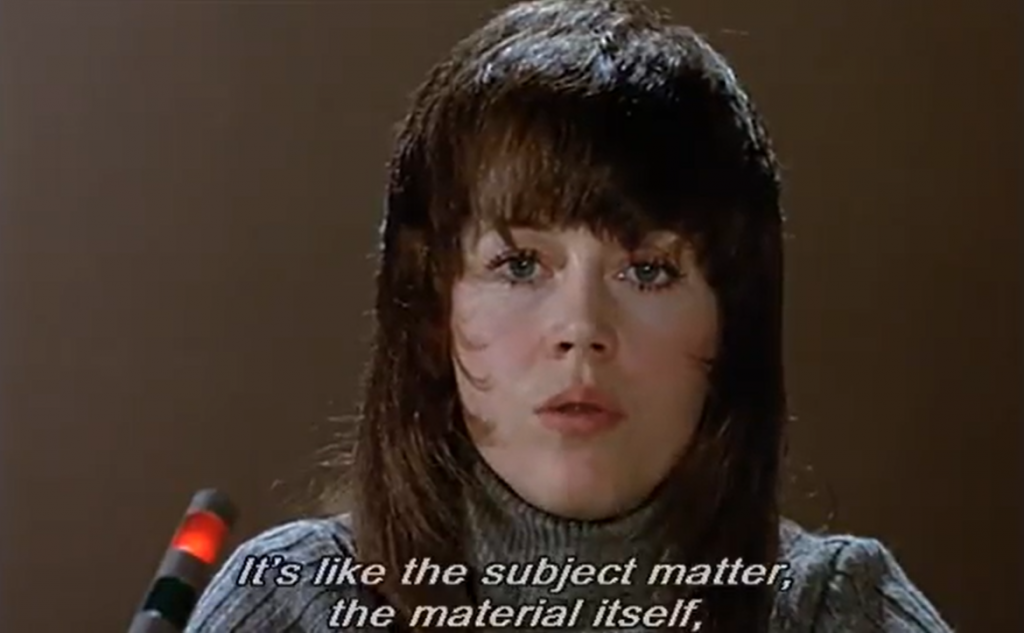
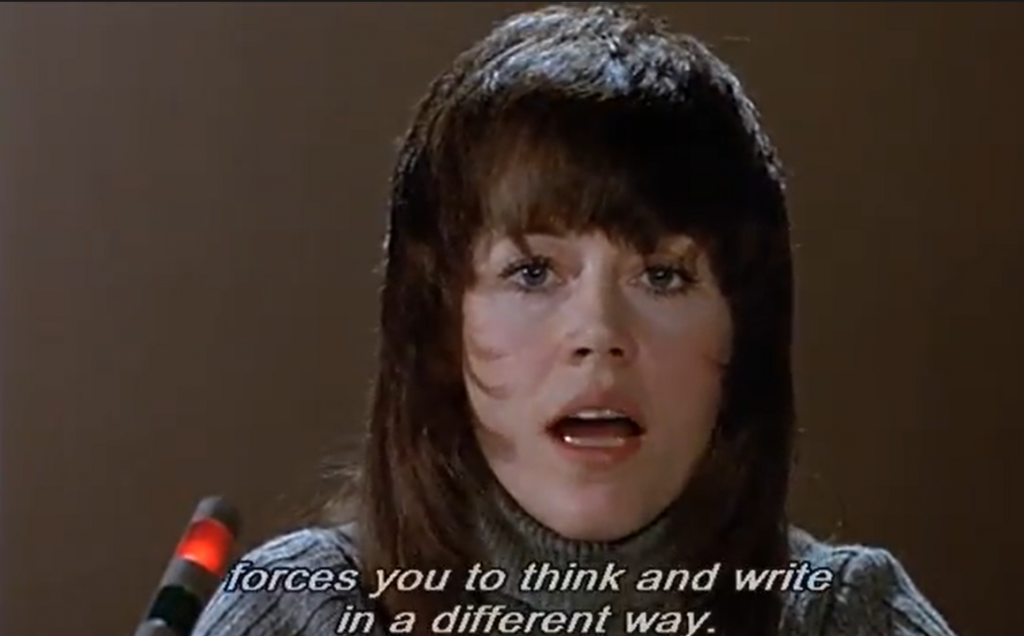
In this scene, the reporter is giving an explanation of what is happening, and it takes her multiple tries. While watching this scene, you can tell she’s trying not to get emotionally involved in what she’s reporting, and it’s not working.

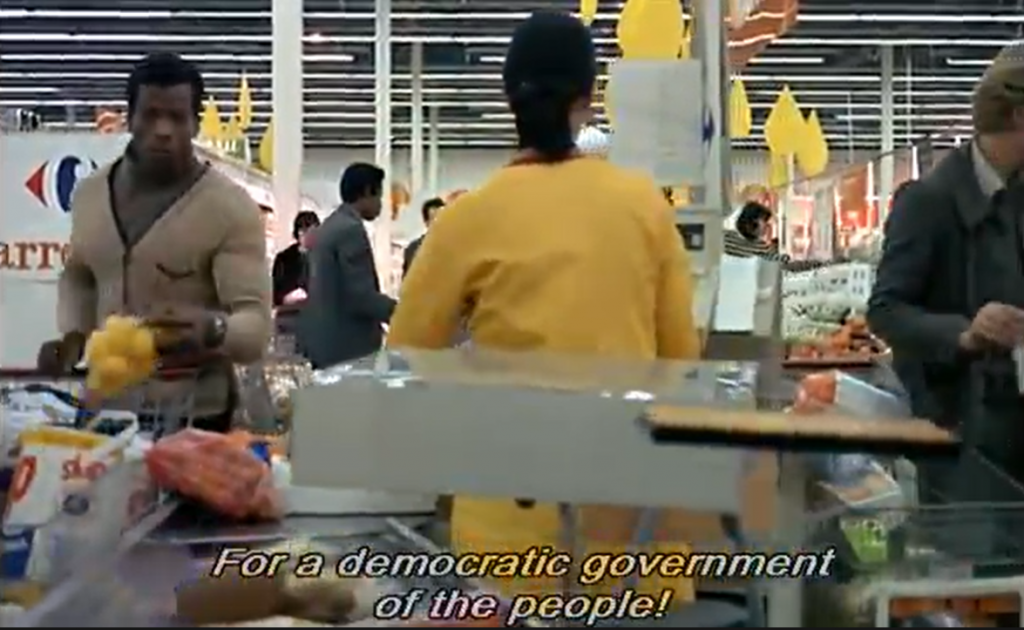
In this scene, a group of students rushes into the supermarket and starts publicly protesting. But while they’re chanting, the camera remains on the customers checking out. The students’ sounds and bodies stay in the background, and that’s exactly what the filmmakers were trying to portray: the customers ignoring the students’ protests and making them background noise.

Leave a Reply